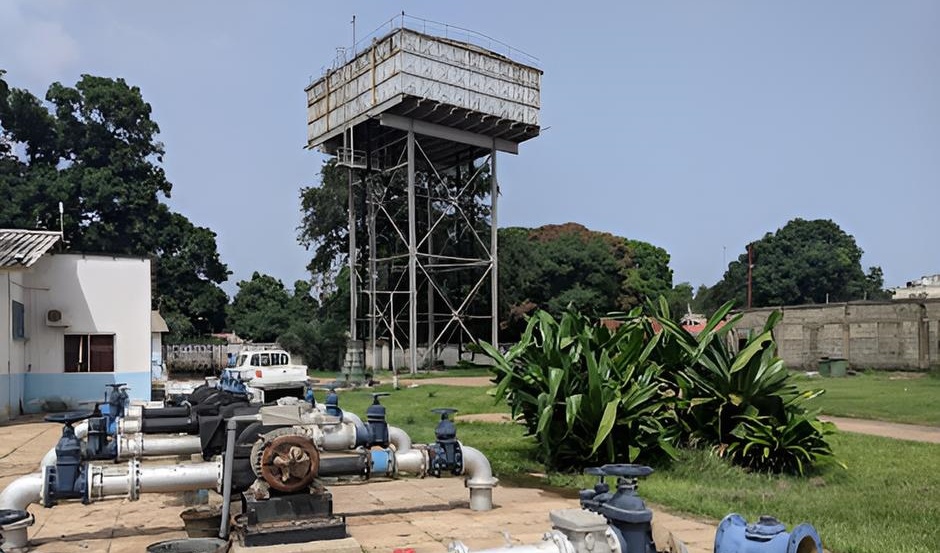Gambiaj.com – (Banjul, The Gambia) — The Edward Francis Small Teaching Hospital (EFSTH), Banjul’s primary referral healthcare facility, is facing severe water shortages, compounding the challenges faced by patients and their families. Amid ongoing water disruptions across the city, patients and caregivers at EFSTH report struggling to access basic water needs, forcing them to buy bottled water to maintain basic hygiene.
Escorts and relatives of patients describe the alarming conditions at the hospital, highlighting the toll that water scarcity takes on the facility’s sanitation.
The Chief Medical Director at EFSTH, Dr. Mustapha Bittaye, told The Standard Newspaper that a recent pipeline issue at Denton Bridge has led to water disruptions throughout Banjul, affecting not only the hospital but also other parts of the city. “We are trying to get the fire service to help us with water,” Dr. Bittaye noted. However, he added that the hospital had recently been connected to Banjul’s central water tank to alleviate shortages when the hospital’s own tanks malfunction.
A Broader Crisis: Faulty Water Tanks Compound Shortages
The water shortage issue at EFSTH reflects a larger crisis gripping Banjul, where outdated infrastructure, including three major water tanks at strategic locations—opposite Mile 2 Prisons, Crab Island School, and Grant Street—has exacerbated the city’s water scarcity. For over 18 months, these tanks have struggled to meet the demand, and recent breakdowns have worsened the crisis.
In a public statement on social media, Banjul civil rights activist Gallas Ceesay Junior painted a bleak picture of life under the water shortages, urging residents to take measures such as buying water storage tanks and pressure machines. “If you are a resident of Banjul and Kanifing, the sporadic water supply that was looming across the country has finally caught up with you,” he wrote. “Schools in Banjul are currently adhering to the Ministry of Basic Education’s directive to close immediately in the event of a water shortage, with students sent home due to Nawec’s inability to maintain reliable water supply.”
The impact of water shortages extends beyond healthcare to educational institutions and daily life, with Banjul’s numerous schools, mosques, and public facilities experiencing the brunt of the crisis. The frequent water outages have forced many schools to dismiss students early, following government directives that prioritize public health and safety during periods of severe water scarcity.
A Call for Urgent Action
As Banjul’s water crisis escalates, the outcry from residents, civil rights activists, and hospital staff underscores the urgent need for sustainable solutions. Many are calling on NAWEC, the national water and electricity provider, to expedite repairs and infrastructure upgrades to ensure consistent water access. For healthcare facilities like EFSTH, where patient care and sanitation are paramount, the current water shortages pose a serious threat to public health and safety.
With Banjul’s central water supply infrastructure deteriorating, experts argue that long-term investments and maintenance are necessary to prevent further decline in service. Until these systemic issues are addressed, however, residents, students, and healthcare providers will continue to navigate daily life under the burden of an unreliable water supply, forced to adapt to shortages that show no sign of resolution.










